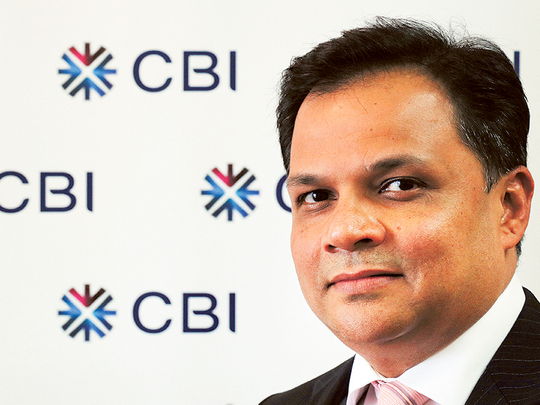
Dubai: Responsible lending practices and effective credit monitoring mechanisms are a few ways to mitigate risks associated with lending to small and medium enterprises (SME) in the UAE, Satyajeet Roy, Head of Business Banking of Commercial Banking International (CBI) told Gulf News in an Interview.
The SME portfolios of the banking sector in the UAE have been facing rising levels of loan impairments from the beginning of this year. The total exposure banks to this sector constitute about 4 per cent of the total loan book. Estimates by UAE Banks Federation, an association of 49 banks operating in the UAE suggest that loan losses from the sector are to climb from Dh5 billion to Dh7 billion this year.
In the post financial crisis years, banks in general have been very generous in lending to the SME sector. The aggressive lending practices, lack of transparency in indebtedness and flaws in due diligence by lenders have seen a steady rise in loan impairments in the SME portfolios of a number of banks in the last few quarters.
While the estimated impairments are less than 0.5 per cent of the total loan books of banks, the exposure levels of banks vary depending on their lending practices. Although some legacy issues related to asset quality will have to be addressed through higher provisions, Roy said the bank has put in place a robust set of lending practices supported by active credit monitoring which will check future risks.
“Responsible lending is the only way forward for banks to address this issue. If you lend, you have to have the ability to collect. It is very difficult to do a post-mortem of the past given the different business environment and business outlook of those days. But going forward client selection remains very important component of sound lending practice,” said Roy.
Stricter selection process
CBI has streamlined the client selection process, starting from the screening by the relationship manager. Every client the bank has on-boarded in 2015 has gone through a review process which involves site visits by relationship managers, unit heads and in cases where ticket sizes are large, visits by business manager.
As part of stricter selection process the bank is also using the services of third party surveyors to review and verify customer claims on their business including supplier and inventory checks.
“These are people who are trained to verify the checklists before the bank disburses funds. These visits are surprise checks. The idea is not to police the RMs rather it is to make sure that we haven’t missed an important piece of information to the company to which we intend to lend,” said Roy.
Lending to SME sector is going through a slowdown as the market is going through a correction. “I would say that the next few quarters will remain tough. Banks will be cautious. But given the nature of this economy and the entrepreneurship in this country and some of the policies that the government is bringing in, I think after a little bit of a hump in the next couple of quarters, lending will pick up pace,” he said.
Although higher pricing (interest rates) is a strategy which many banks would deploy when credit conditions become difficult, Roy said CBI will be more than happy to offer competitive rates to clients who meet their selection criteria.
Improving transparency in credit exposures supported by the central bank data on exposure of companies and individual credit data from Etihad Credit Bureau are helping the client selection process.
Factbox: Monitoring an ongoing process
Credit monitoring is an ongoing process starting from the assessment of the clients repayment capacity stretching throughout the life of the loan and it should be done at regular intervals, said Satyajeet Roy, Head of Business Banking of Commercial Banking International (CBI).
While the relationship managers will be the first point of monitoring and review of clients at a regular interval, Roy said the entire team should be able to read market trends and what it means for their clients.
“We can’t afford to wait till the default to happen to work with the customers. The bank should be able to read early warnings from the market,” he said.











